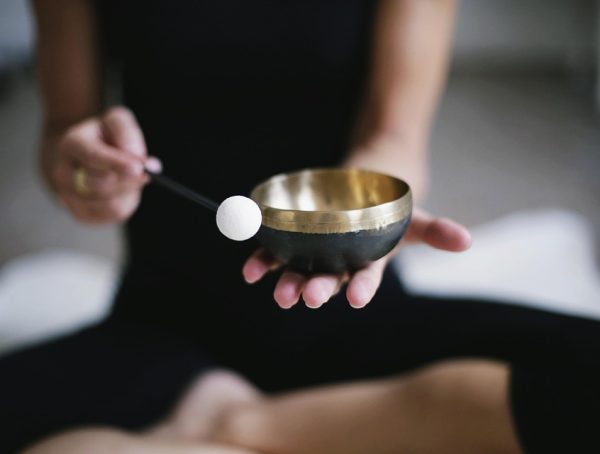Meditation and Anxiety Relief: A Path to Tranquility
In the cacophony of modern life, where hustle and bustle often overshadow stillness and calm, anxiety has become an all-too-familiar companion for many. According to the World Health Organization, anxiety disorders are the most prevalent mental health issue globally, with millions of individuals grappling with feelings of unease, panic, and worry. Fortunately, a growing body of research suggests that meditation can be a highly effective tool for alleviating anxiety and promoting a sense of inner peace. In this article, we will explore the profound impact of meditation on anxiety relief and provide actionable steps for incorporating this practice into your daily routine.
Understanding Anxiety
Anxiety is a natural response to stress—an evolutionary mechanism designed to keep us alert and safe. However, when anxiety spirals into excessive worry and crippling fear, it can hinder relationships, careers, and overall well-being. The good news is that each of us has the ability to cultivate a state of tranquility through mindfulness and meditation.
Meditation involves training your mind to focus and redirect your thoughts. It’s a practice that encourages both emotional and physical relaxation, often leading to a reduction in anxiety symptoms. Research has shown that regular meditation can stimulate changes in the brain, promoting emotional regulation and resilience against stress.
How Meditation Helps Relieve Anxiety
-
Mindfulness: At its core, meditation encourages mindfulness—the practice of being present in the moment without judgment. This shift in focus can reduce the tendency to dwell on past misfortunes or future anxieties, fostering a more balanced perspective.
-
Reduced Stress Response: Meditation has been found to decrease the body’s stress response, lowering levels of cortisol, the stress hormone. This physiological change can enhance feelings of calmness and relaxation.
-
Increased Emotional Intelligence: Meditation promotes self-awareness, helping you to recognize the triggers of your anxiety. By developing a deeper understanding of your emotional landscape, you can make more informed decisions about how to respond to stressors.
-
Improved Concentration: Regular meditation practice can enhance your attention span. With better focus, you’re less likely to spiral into anxious thoughts or distractions.
- Enhanced Self-Compassion: Meditation fosters compassion toward oneself, which can be a great antidote to the harsh self-criticism many people with anxiety experience. Embracing self-love decreases feelings of inadequacy and fear.
Action Steps for Incorporating Meditation into Your Life
The journey to tranquility through meditation doesn’t require costly retreats or hours of daily practice. Here’s how you can get started on this transformative path:
-
Set a Regular Schedule: Consistency is key. Dedicate a specific time each day for your meditation practice. Whether it’s early in the morning or right before bed, establishing a routine will help integrate meditation into your lifestyle.
-
Create a Comfortable Space: Find a quiet, peaceful spot where you can sit comfortably. Consider adding elements that promote relaxation—such as candles, incense, or soft cushions.
-
Start Small: If you’re new to meditation, begin with just a few minutes a day. Gradually increase the duration as you become more comfortable. Even five minutes can make a difference in reducing anxiety.
-
Focus on Your Breath: One of the simplest meditation techniques involves focusing on your breath. Close your eyes, inhale deeply through your nose, and exhale slowly through your mouth. As thoughts arise, gently acknowledge them and return your focus to your breath.
-
Use Guided Meditations: There are various apps and online resources available with guided meditations tailored for anxiety relief. These can help you stay focused and committed to your practice.
-
Practice Loving-Kindness Meditation: This technique encourages you to silently wish well to yourself and others. It fosters empathy and emotional resilience—key factors in alleviating anxiety.
-
Keep a Journal: After meditating, take a moment to reflect on your experience. Journaling can help you process emotions and track your progress over time.
-
Engage in Regular Physical Activity: Complement your meditation practice with regular physical activity. Exercise is known to relieve anxiety and can enhance the benefits of meditation.
-
Seek Support: Consider joining a local meditation group or taking a class. Sharing your experiences with others can provide motivation, accountability, and insights.
- Be Patient and Flexible: Meditation is a skill that takes time to develop. Be patient with yourself and remain open to exploring different styles of meditation to find what resonates with you.
Moving Toward Tranquility
The journey toward tranquility via meditation is unique for everyone. As you embark on this path, you may encounter moments of discomfort or distraction; this is entirely normal. Remember that the ultimate goal of meditation is not to eliminate anxiety entirely but to create a healthier relationship with your thoughts and feelings.
Ultimately, meditation is a powerful tool that can help you cultivate a deeper sense of self-awareness, emotional resilience, and lasting peace. It might not be a magic wand that dispels all anxiety, but it is undoubtedly a remarkable practice to aid in transforming your response to life’s challenges.
Meditation can provide you with a sanctuary of calm amidst the chaos. Allow yourself this opportunity for growth, and embrace the journey toward inner tranquility.
As you explore meditation, remember:
“Your calm mind is the ultimate weapon against your challenges.”
If you found this article helpful, feel free to follow Kevin on Instagram (@KSteineman) for more insights on mental health, wellness, and meditation practices. Embrace this journey toward tranquility, and may your mind find the peace it seeks.
You might also like
More from Meditation
The Role of Mantras in Transcendental Meditation: A Deep Dive
The Role of Mantras in Transcendental Meditation: A Deep Dive Transcendental Meditation (TM) has garnered a significant following across the globe, …
The Science Behind Meditation: Improving Mental Health Naturally
The Science Behind Meditation: Improving Mental Health Naturally In today's fast-paced world, the pursuit of mental wellness has become paramount. Thousands …
Understanding the 7 Types of Meditation for Beginners
Understanding the 7 Types of Meditation for Beginners: A Path to Inner Peace Meditation has become a popular practice in recent …


































